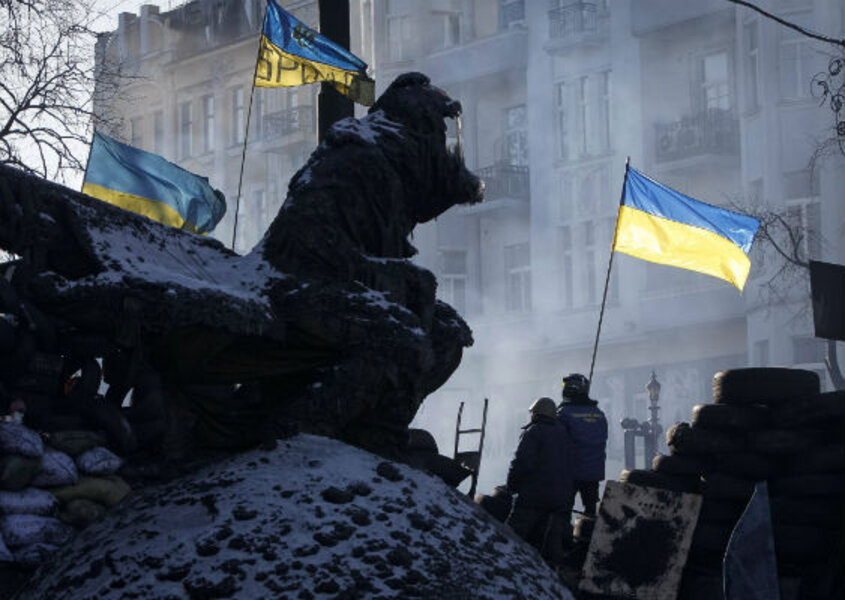Would Western aid to Ukraine be a setback?
Loading...
| Paris
Testing the assumptions behind the headlines.
The European Union and the United States are considering an aid package for Ukraine that would represent the West’s most significant effort to date to bring an end to political violence that flared after Ukraine’s president walked away from an EU trade agreement in November.
But the rescue money could actually put the political situation back at “square one,” says Amanda Paul, an analyst at the European Policy Center in Brussels. Its delivery depends on economic and political reforms enacted by a new cabinet, which might place Ukraine once again at the center of tug-a-war between the West and Russia – one reason the street protests emerged in the first place.
EU foreign policy chief Catherine Ashton told The Wall Street Journal that Western nations were ready to provide an aid package, one that “won’t be small,” to bring the kind of stability needed to move the country beyond the protracted conflict that has taken at least six lives and injured 1,000 people.
The package aims to get Ukraine “moving toward elections that will be done freely and fairly,” she told the paper, with a “broad-based interim government.”
The move would boost the opposition and protesters, who poured into the streets after Ukrainian President Viktor Yanukovych, under threat of financial sanction from Russia, pulled out of an agreement that would have put the post-Soviet country more in line with EU standards and norms, paving the way for future EU membership.
The reports of an aid package come as US Secretary of State John Kerry, as well as European diplomats, met with opposition leaders on the sidelines of an annual security conference in Munich over the weekend.
If Russia dismisses the effort as an attempt at blackmail and threatens to withhold its aid, it could hand the decisionmaking back to Russian President Vladmir Putin, says Ms. Paul. “You can change what happens in Ukraine but you can’t change the way Russia thinks,” she says. “Ukraine is still going to be stuck in the middle.”
Mr. Yanukovych might today however be more willing to accept an aid package, and the conditions placed on the country. That is because Russia announced last week, after Yanukovych dismissed his prime minister, that it was withholding an installment of a $15 billion package promised by Moscow last December as a counter to the earlier EU deal. That package was ostensibly offered as an unconditional one.
Yanukovych originally walked away from the EU association agreement because he said it would hurt the Ukrainian economy. Protests have grown increasingly violent as the government has cracked down on protesters, many of whom have reportedly redirected their anger away from the Ukrainian policy tilt to Russia and toward Yanukovych himself. They want him to step down immediately.








